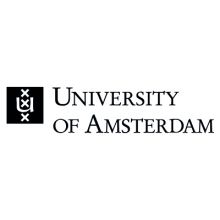Virtual universities founded before Russia’s invasion of Ukraine are offering practical help and a community to some of the thousands of academics uprooted by the conflict.
Gasan Gusejnov, a professor at the Free University of Berlin, helped found the virtual Free University in 2020 with colleagues who resigned or were dismissed from Moscow’s Higher School of Economics.
He said that many of the tens of thousands of academics and students who have left Russia since the invasion and resulting political crackdown in the country have ended up in former Soviet states such as Armenia, Azerbaijan, Georgia and Kyrgyzstan.
In a statement, the university’s founders and volunteer professors ask the wider academic community to differentiate between pro-government Russians and dissenters, who are “being punished twice”: excluded from their home institutions and foreign programmes.
“They cannot be thrown away from international academia because they belong to this academia. They are risking their lives, they are risking their jobs,” he said. “We are somewhere in between.”
The university offers free lectures and seminars taught by about 30 post-Soviet emigres. Dmitry Dubrovsky, a professor at the university, joined as soon as the university launched and left Russia immediately after the war began.
He counted himself lucky, having secured a six-month paid internship at the Central and East European Law Initiative in Prague. He joined the Free University to support its founders, but also for the freedom it offers.
“We are scholars and we are teachers. Like breathing, we really need to teach,” he said. “Free University gave me the opportunity to be among the colleagues who are on the same plate in terms of their anti-war attitude.”
He said while the academics involved were politically diverse and had “serious disagreements” on some issues, they have “absolutely the same values about academic freedoms”.
The University of New Europe, another virtual university, was founded in 2021 in response to the crackdown on pro-democracy protests in Belarus. One of its founders, Ellen Rutten, a professor at the University of Amsterdam, said that the initiative had to adapt when war broke out.
Its solution was to offer mentoring for exiled academics to help them parse the many offers that have sprung up in recent weeks. They have paired up 250 mentors and mentees so far and Professor Rutten said that they were working through a backlog of mentee applications, a “fair amount” of which come from Russia.
“There are some people who cannot leave but are also desperate just to talk and think together with someone else about how to deal with the new reality,” she said, referring to those who have been excluded from their institution but have not left their country.
As well as looking for a “listening ear”, she said most mentees were looking for pragmatic advice from academics who know their national system. “Many people do really look for someone with a good network who can reassure them also on a practical level and just tell them, ‘You just sit down, lean back, and I will start exploring the options for you.’”
Despite the very different roles played by their countries in Europe’s newest conflict, academic exiles from Belarus, Russia and Ukraine may be united in a desire to continue their work. Professor Dubrovsky said ad hoc institutions that offer education in exiles’ native tongues can act as a refuge for scholarship too. “Our battle is to keep our humanities and social sciences for the future,” he said.
Register to continue
Why register?
- Registration is free and only takes a moment
- Once registered, you can read 3 articles a month
- Sign up for our newsletter
Subscribe
Or subscribe for unlimited access to:
- Unlimited access to news, views, insights & reviews
- Digital editions
- Digital access to THE’s university and college rankings analysis
Already registered or a current subscriber? Login










